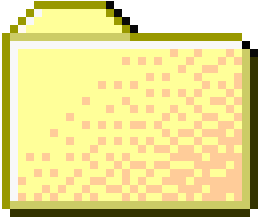
 ..
..
1
2
3
4
5
6
7
8
9
10
11
12
13
14
15
16
17
18
19
20
21
22
23
24
25
26
27
28
29
30
31
32
33
34
35
36
37
38
39
40
41
42
43
44
45
46
47
48
49
50
51
52
53
54
55
56
57
58
59
60
61
62
63
64
65
66
67
68
69
70
71
72
73
74
75
76
77
78
79
80
81
82
83
84
85
86
87
88
89
90
91
92
93
94
95
96
97
98
99 | //
// As with integers, you can pass a pointer to a struct when you
// will wish to modify that struct. Pointers are also useful when
// you need to store a reference to a struct (a "link" to it).
//
// const Vertex = struct{ x: u32, y: u32, z: u32 };
//
// var v1 = Vertex{ .x=3, .y=2, .z=5 };
//
// var pv: *Vertex = &v1; // <-- a pointer to our struct
//
// Note that you don't need to dereference the "pv" pointer to access
// the struct's fields:
//
// YES: pv.x
// NO: pv.*.x
//
// We can write functions that take pointers to structs as
// arguments. This foo() function modifies struct v:
//
// fn foo(v: *Vertex) void {
// v.x += 2;
// v.y += 3;
// v.z += 7;
// }
//
// And call them like so:
//
// foo(&v1);
//
// Let's revisit our RPG example and make a printCharacter() function
// that takes a Character by reference and prints it...*and*
// prints a linked "mentor" Character, if there is one.
//
const std = @import("std");
const Class = enum {
wizard,
thief,
bard,
warrior,
};
const Character = struct {
class: Class,
gold: u32,
health: u8 = 100, // You can provide default values
experience: u32,
// I need to use the '?' here to allow for a null value. But
// I don't explain it until later. Please don't tell anyone.
mentor: ?*Character = null,
};
pub fn main() void {
var mighty_krodor = Character{
.class = Class.wizard,
.gold = 10000,
.experience = 2340,
};
var glorp = Character{ // Glorp!
.class = Class.wizard,
.gold = 10,
.experience = 20,
.mentor = &mighty_krodor, // Glorp's mentor is the Mighty Krodor
};
// FIX ME!
// Please pass Glorp to printCharacter():
printCharacter(???);
}
// Note how this function's "c" parameter is a pointer to a Character struct.
fn printCharacter(c: *Character) void {
// Here's something you haven't seen before: when switching an enum, you
// don't have to write the full enum name. Zig understands that ".wizard"
// means "Class.wizard" when we switch on a Class enum value:
const class_name = switch (c.class) {
.wizard => "Wizard",
.thief => "Thief",
.bard => "Bard",
.warrior => "Warrior",
};
std.debug.print("{s} (G:{} H:{} XP:{})\n", .{
class_name,
c.gold,
c.health,
c.experience,
});
// Checking an "optional" value and capturing it will be
// explained later (this pairs with the '?' mentioned above.)
if (c.mentor) |mentor| {
std.debug.print(" Mentor: ", .{});
printCharacter(mentor);
}
}
|
|
















